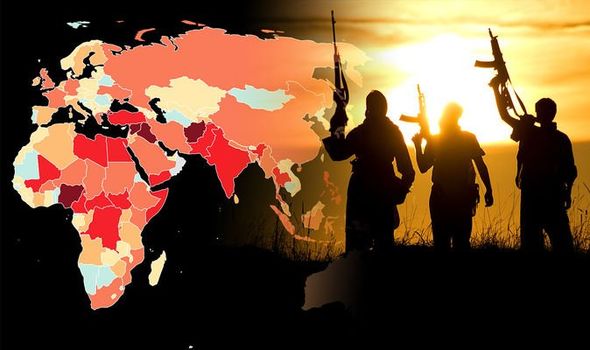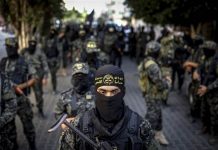This article is written by Miss Srestha Nandy from IMS Unison University, Dehradun. This is an exhaustive article which deals with the conflicts between civil liberties and public safety.
Table of Contents
Introduction
Terrorism is never an outdated topic, whether it is internal or foreign. From the emergence of terrorism, our legislation to the concern has come to make prominent bodies to aid terrorism. But before constructing laws and restrictions, one needs to understand the root cause of it. Also, there exist different motives behind making the laws and regulations. This context also holds a responsible ground which signifies to whom the powers shall be distributed to prevent the misuse. The following contexts consist of the major aspects of anti-terrorism legislation.
Concept of terrorism
Terrorism is nothing new, but going by history, the modern concept of terrorism had emerged from the ‘French Revolution’ in 1789. Before this, terrorism also has an ancient origin. There was a Jewish Terrorist Organisation founded in the 1st Century AD. Terrorism also includes the context of guerrilla warfare. The essentials of guerrilla wars are political goals, extraordinary leadership, and military discipline.
The judgment in the case Mohd. Iqbal M. Shaikh & Ors v. The State Of Maharashtra (1998) stated that “it is not possible to give a precise definition of terrorism, but it can be described as the use of violence which results in not only physical damage but also a prolonged psychological effect on the society. If the object of the activity is to disturb the harmony and tranquillity of society and terrorize the people, where a sense of fear and insecurity has been created in people’s minds, undoubtedly it will be considered a terrorist act”. Terrorism shares some common characteristics with war and crime but all these are not the same.
Terrorism can be differentiated from organized crime in the following ways:
- Terrorism is politically and socially motivated while organized crime is profit-motivated.
- Terrorists seek media attention, unlike criminals.
- Terrorist groups seek government recognition.
Terrorism is motivated by group identity, religious beliefs, political objections, etc. Sometimes the individuals involved in terrorism believe that the government is not treating them well, and denies accepting their policies. Terrorism comes from formal groups and individuals. Sometimes governments are also involved in terrorism. When terrorism affects many states at a global level, it is considered international terrorism. Studies have shown that the Middle East and North Africa are one of the regions prone to terrorism, about 60% of death were due to terrorism in 2017.
Types of terrorism
There are four types of terrorism recognized worldly:
- State-sponsored terrorism – When there is a support of government to a terrorist organization, it constitutes state-sponsored terrorism. These activities include proxies in armed conflict between the states.
- Dissent terrorism – When terrorists rebel against the government, it constitutes dissent terrorism.
- Religious terrorism – Terrorist organizations spreading their religion across the globe constitutes religious terrorism.
- Criminal terrorism – When organizations get involved in aid in crime and criminal profits for the growth of terrorism, it constitutes criminal terrorism.
Anti-terror laws in India
The anti-terror legislation or the Indian Anti-terror laws include a broad context. These laws are not enclosed within some acts but a series of enactments. These enactments with time get repealed and with every repeal, new law arrives. The object of these laws is to safeguard national security as it is very important to maintain proper security and public order. But with the dynamic environment, these laws sometimes impose unrestricted power over an individual body which leads to the imbalance of civil rights. So to be consistent with the current affairs of the states, the laws are regularly modified.
The Preventive Detention Act, 1950
Before independence, Britishers used the measures of preventive detention to empower and control India. But after independence, there were internal disturbances and communal violence. To aid these problems, and to secure the rights of the citizens, a bill was passed in the Parliament which was recommended by Sardar Vallabhbhai Patel. The bill became a law and it was known as the Preventive Detention Act, 1950.
This Act signified that the government holds the power to detain an individual for a term of one year on reasonable grounds. The purpose of this law was to handle the violence and displacement caused due to the partition. But one major aspect of this law is that it was temporary. The objective of the temporary laws was that they would lapse when the concerned issue got sorted, due to which this law was made. These types of laws include the sunset clause. Here, the parliament had mentioned during the formation of this law, that with specific time intervals this law will be modified unless the major issue gets sorted. So with time, this law was terminated in 1969.
The Maintenance of Internal Security Act, 1971
Within the two years of lapse of the Preventive Detention Act, the Maintenance of Internal Security Act, 1971 arrived. So there were major similar provisions in both the enactments. The purpose of these acts was to impose more restrictions on the individuals who were detained due to reasonable grounds. During this time, under this enactment, many individuals were detained without proper trial rights, violating their civil liberties and freedom.
But in 1975 there was major misuse of this law. It was the year of the 3rd National Emergency. The 1st was in 1961 when China invaded India while the 2nd was in 1971 during the war with Pakistan. The 3rd National Emergency in 1975 signified internal disturbance. During this time, political leaders were arrested, elections got postponed, anti-government protests emerged, and the press was also censored. Those who were engaged with the conflicts and facing the government, upon them the provisions of the Maintenance of Internal Security Act were imposed. There were student protests in Gujrat and Bihar and other major conflicts in different parts of the country.
Finally, in 1977 two things ended, the first one the Government of Indira Gandhi and the enactment of the Maintenance of Internal Security Act. After this, in 1980 a new act arrived which was the National Security Act, 1980.
The Armed Forces (Special Powers) Act, 1958
There was an emergence of violence in Nagaland in the year 1957 – 1958 due to the separated movements. Even the Central Government was unable to control the conflicts. So during that time, a new act was introduced namely the Armed Forces Special Powers Act, 1958. The purpose of the Act is to deal with the disturbed areas of the State to maintain public order. It also provided special powers to the armed forces to deal with the disturbances.
What makes AFSPA different from other enactments
AFSPA provides the government under Section 3 a special power to declare any region as a disturbed area. Along with that, AFSPA also ensures the armed forces act upon those disturbed areas. Further, under AFSPA, the armed forces retain special powers such as arrest and search without a warrant, cease of firearms, etc. Under these when an area has been declared as disturbed by the government under AFSPA, then the police and the military work parallelly to maintain the public order. Otherwise, it is the duty of the police specifically to maintain the public order of a state.
Initially, AFSPA was introduced to handle the issues of Nagaland, but eventually, with time AFSPA provisions were also imposed on the other North-Eastern states, even other states like Punjab and Jammu and Kashmir.
The National Security Act, 1980
This enactment is formed by a combination of provisions of the Preventive Detention Act and the Maintenance of Internal Security Act. One of the major aspects of this Act is to detain an individual to curb one from committing more crimes in the future and to prevent one from escaping prosecution and punishment.
This Act empowers the state and central government to detain any individual or group in the interest of national security. It is still in existence. Under this Act, an individual can be detained for a maximum period of 12 months. In case of new evidence supporting the offence, the detention can be extended. Also, this Act denies two basic rights: one states that the authority doesn’t need to inform the accused regarding the grounds of the detention, and the other states that no legal aid shall be provided.
Criticism of the Act
It has been said that there are some acts under the National Security Act, which signify a punitive measure instead of a preventive measure. This Act holds flaws along with its purpose. The government believes that crimes disrupt public order, so even a threatened act causing a commotion or any fear arising from a media report of a criminal incident is to be considered and analyzed so as to prevent any negative consequences. Also, the government permits detention when a public order gets threatened to favour the provisions of the National Security Act. Another major issue with the system is that they lack proper records for the grounds of detention, and there is no other authority to question this.
The Terrorist and Disruptive Activities Act, 1987
This Act was introduced to deal with and control the issues of separatist activities and terrorist activities of Punjab. But the provisions under this Act were overriding the provisions of the Constitution of India and the Code of Criminal Procedure, 1908. Under this Act, there are new provisions related to new offences, police powers and restrictions to arrested persons. For example, a confession in police custody is not admissible under Section 24 of the Indian Evidence Act, 1872, but under the Terrorist and Disruptive Activities Act, confessions in police custody are considered a major piece of evidence and are admissible in court. All these grounds made TADA Act supreme over the Constitution. So due to this, using the sunset clause, this Act was repealed in the year 1995.
The Prevention of Terrorism Act, 2001
Due to the consequence of three major attacks, that is, Kandahar Hijack, 1999, World Trade Center Attack, 2001, Indian Parliament Attack, 2001, the Prevention of Terrorism Act (POTA), 2002 was introduced to strengthen the anti-terror laws. This Act holds the provision for the detention of 180 days. Another major aspect is that the objectives of TADA were similar to that of POTA, because of which there were similar allegations against POTA. In 2004, a report was presented before the People’s Tribunal highlighting the fact that the security legislation has granted unnecessary powers to authorities which are resulting in misuse of powers and restrictions of basic rights. So finally in 2004, the Union Cabinet approved the ordinance to repeal the Prevention of Terrorism Act and amend the Unlawful Activities Prevention Act 1967.
The Unlawful Activities (Prevention) Act, 1967
This enactment is also known as POTA 2.0. It is the national security legislation that provides powers to the government to detain individuals based on vague and arbitrary grounds in the interest of national security. The purpose of this enactment was to deal with the issue of ‘National Integration and Regionalization’, and to introduce reasonable restrictions. With the introduction of the 16th Amendment of the Constitution, there was the imposition of restrictions on certain fundamental rights such as:
- Freedom of speech and expression.
- Right to assembly peacefully.
- Right to associations and unions.
So to exercise these provisions, UAPA was introduced and enacted in 1967.
Amendment of 2019
Before the year 2019, this Act was only applicable to organizations or specifically terrorist organizations. But after the amendment, it is now applicable to both individuals and organizations.
This Act provides powers to the government to designate any organization as a terrorist organization if:
- It commits and participates in acts of terrorism.
- Prepare and promotes terrorism.
- Otherwise involves terrorism.
The above changes were brought because earlier the government observed that in case they ban any terrorist organization, the members of that banned organization again form another organization or start acting individually.
Another major change of UAPA from normal criminal law is on the grounds of detention. Under Section 167 of the Code of Criminal Procedure, one cannot be detained for more than 90 days even if the investigation is not complete and the charge-sheet is not filed, the detention cannot be extended and the right to bail for the accused will be available. But in the case of UAPA, under Section 43D of the Code, one can be detained for 180 days. It can be extended without a charge sheet and the right to bail will not arise in these cases if the magistrate or the judge is satisfied with the reasons of the public prosecutor, or in case the investigation requires more time.
The last change is the addition of the 4th schedule. In this, the government has the power to add the name of an individual or organization under the 4th schedule and declare them a terrorist. But there is no definite process for this procedure. Only one remedy is available, in which within 45 days one can appeal to the government to denotify their name from the 4th schedule.
But there are some negative aspects to these changes:
- In case when a person or individual is considered a terrorist or involved in such activity, under UAPA Act one will be detained for 180 days and there will be no bail available, where the detention can be also extended.
- To execute the appeal option, one has to approach the same government that has tagged them as a terrorist.
- To this, once one had been declared a terrorist then in reality one would not be considered as a civilian anymore. All civil rights and other opportunities will be ceased.
The government has to provide a security system. But in the name of security, civil rights are getting restricted, which is not fair. Here lies the conflict.
Conclusion
With the developments and innovations, the economy is evolving. To this, our legislation is present to amend, make and repeal laws whether it is on the field of anti-terrorism or any other. The same law won’t be effective after ten years. So in this regard, change is constant and with upcoming events, there are wider scopes for new enactments, provisions, etc.
References
LawSikho has created a telegram group for exchanging legal knowledge, referrals, and various opportunities. You can click on this link and join:
 Serato DJ Crack 2025Serato DJ PRO Crack
Serato DJ Crack 2025Serato DJ PRO Crack










 Allow notifications
Allow notifications


